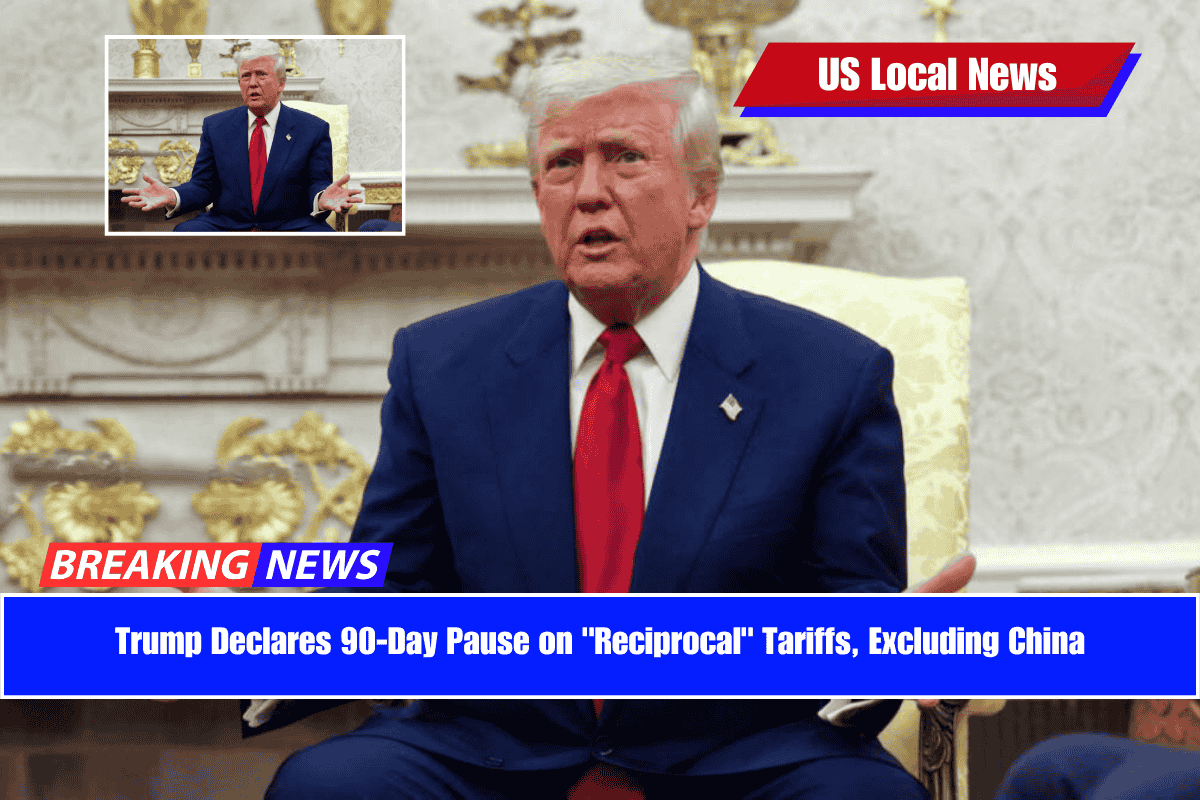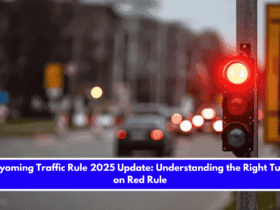President Donald Trump has announced a surprising three-month pause on new tariffs for most countries—but not for China, which will now face even higher trade penalties. This decision marks a major shift from Trump’s earlier tough stance on tariffs and comes amid growing pressure from global markets and U.S. business leaders.
The 90-day pause will affect most countries that were facing steep reciprocal tariffs. However, China’s tariff rate will jump from 104% to 125% following Beijing’s announcement of new retaliatory tariffs on U.S. goods.
What Trump Said About China and Tariffs
Trump made the announcement on Truth Social, calling out China for what he described as disrespect toward global trade. He wrote:
“Based on the lack of respect that China has shown to the World’s Markets, I am hereby raising the Tariff charged to China by the United States of America to 125%, effective immediately.”
Later, he told reporters:
“China wants to make a deal, they just don’t know how quite to go about it.”
Who Is Affected by the Tariff Pause?
The pause applies to all countries that were hit by Trump’s reciprocal tariff order except China. However, the details vary:
- Mexico and Canada: Goods from these countries still face a 25% tariff unless they meet requirements under the US-Mexico-Canada Agreement (USMCA).
- Other countries: Their tariffs will revert to a universal 10% rate for the next 90 days.
Despite keeping the 10% rate, the news brought a huge relief to Wall Street.
Market Reaction: Stocks Surge
The markets soared after Trump’s announcement:
- Dow Jones jumped nearly 3,000 points (+7.87%)
- S&P 500 rose 9.5%
- Nasdaq surged 12.2%, marking its second-best day ever
Trump posted on Truth Social earlier in the day:
“THIS IS A GREAT TIME TO BUY!!!”
Shares of Trump Media & Technology Group (DJT) also rallied, rising more than 20% after the announcement, reversing recent losses.
Why the Sudden Change?
According to Treasury Secretary Scott Bessent, the pause had always been part of Trump’s long-term strategy, though insiders suggest it came after pushback from business leaders and advisors. Bessent and Commerce Secretary Howard Lutnick were with Trump when he posted the update.
“No one creates leverage for himself like President Trump,” Bessent said.
He added that the message to other countries was clear:
“Do not retaliate and you will be rewarded.”
However, U.S. Trade Representative Jamieson Greer admitted he was not informed about the pause ahead of time, highlighting the sudden nature of the decision.
What About China?
China responded by announcing retaliatory tariffs of 84% on U.S. goods starting Thursday. The State Council Tariff Commission criticized the U.S. move as harmful to the global trading system.
China has vowed to “fight to the end,” and experts warn the situation could escalate.
“Chinese leaders have the backing of a more supportive general public to stand up to the U.S. and pivot to domestic consumption,” said Cornell University professor Wendong Zhang.
Does This Prevent a Recession?
Experts are cautious. While the tariff pause helped markets rally, economists still warn of a recession:
- RSM US economist Joe Brusuelas says the pause only delays further economic pain.
- Goldman Sachs now forecasts a 45% chance of recession, down from it being the “base case” before the announcement.
Meanwhile, 25% tariffs remain on steel, aluminum, and autos, and Trump has promised more on industries like lumber, copper, and pharmaceuticals.











Leave a Reply